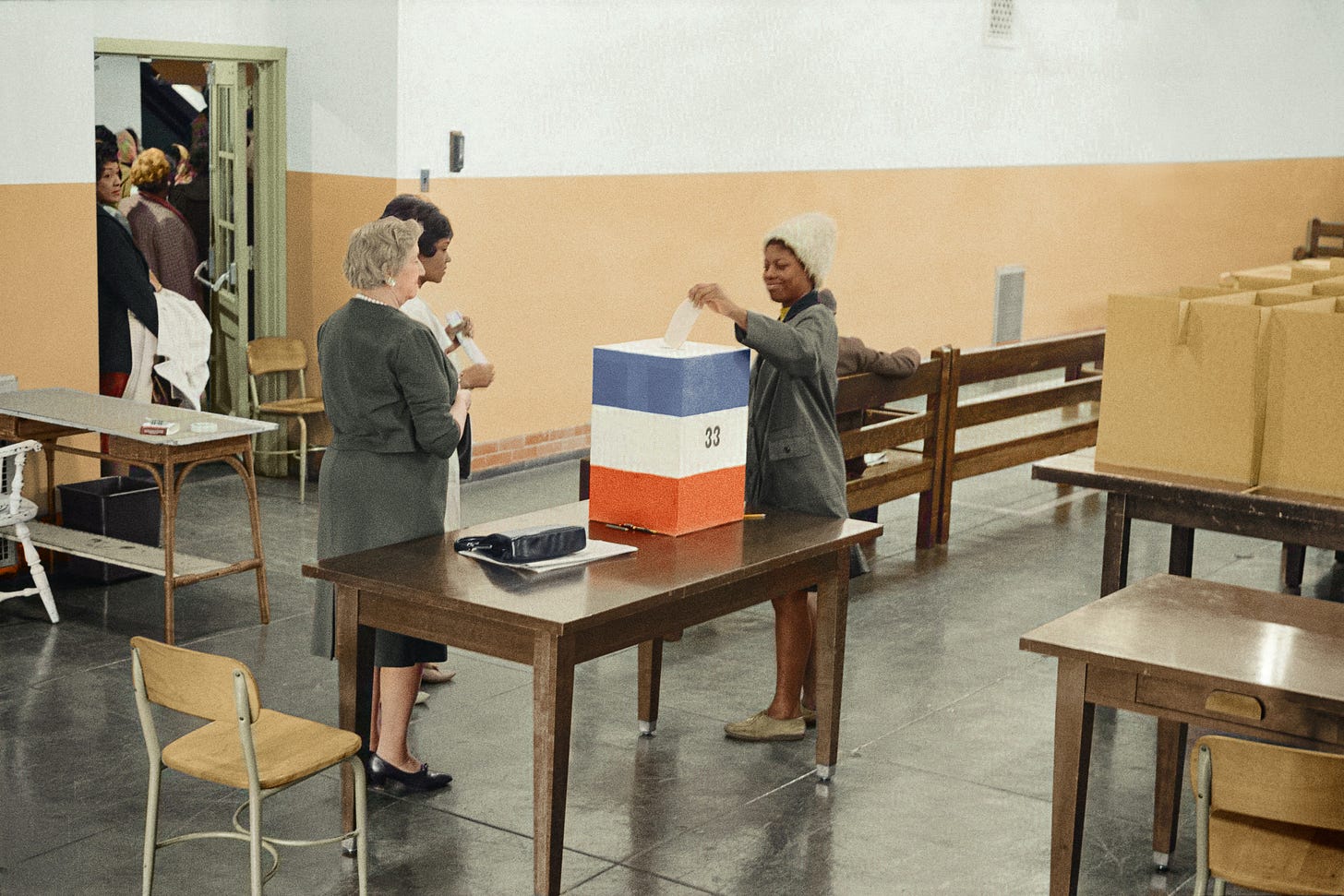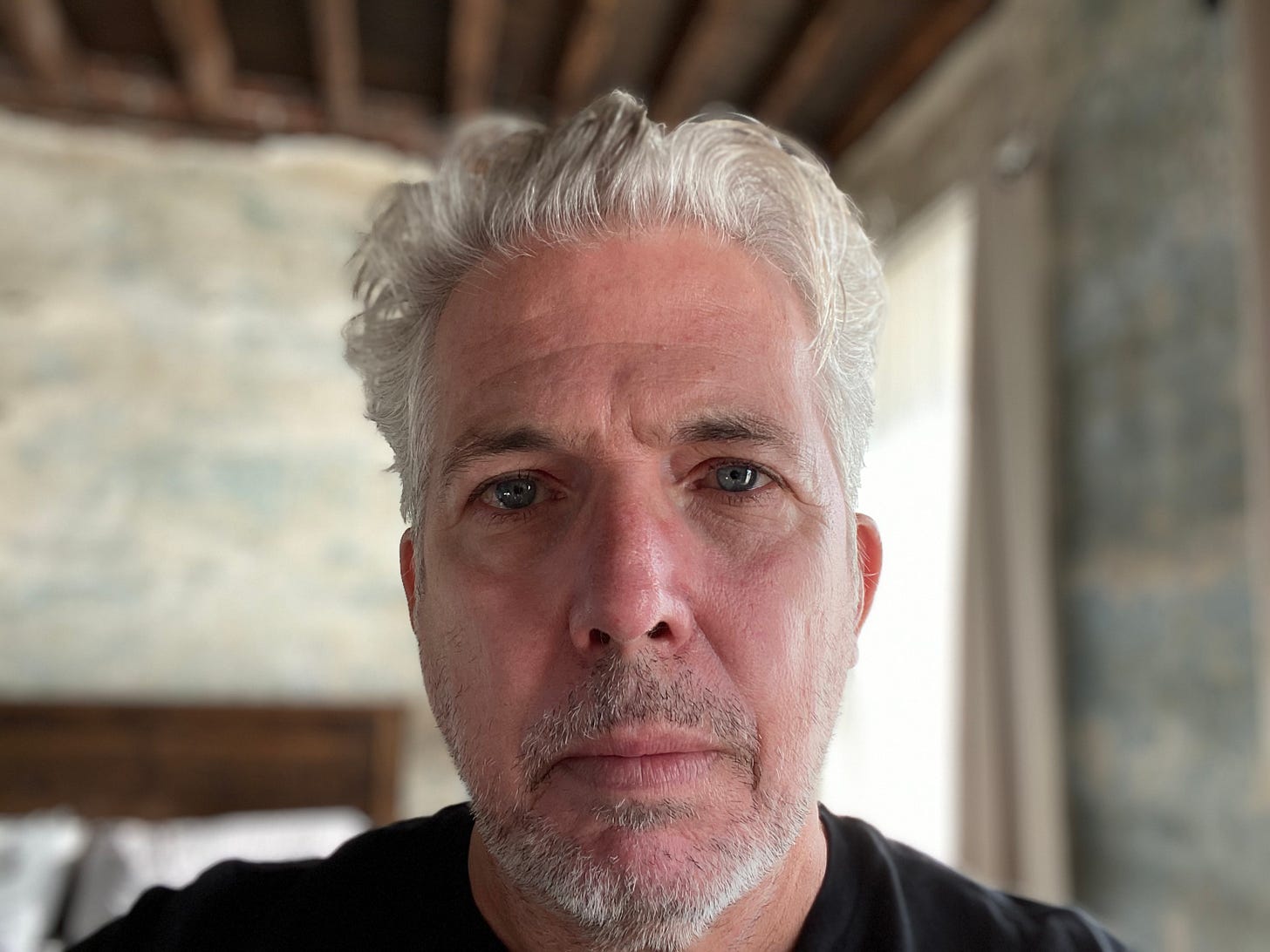Lie down with a cow
(No. 37) Resistance training, hallucinations and Ella sings
But first, this: 67-year-old William Bryant Logan has written a startling vision for the future. It came to him in a Covid-19 hallucination.

The key to electoral success

Voting in Washington, DC, 1964. Public domain @libraryofcongress. Photograph by Marion S. Trikosko (colorized)
People keep telling me that they feel powerless this year. As though they have no say about the virus, the economy or the elections. They’re wrong. Everyone can vote. And, amazingly, older people have more influence over the vote tally than any other age group. This power is a perk that anyone who lives long enough can enjoy. It’s more fun than wrinkles, social security checks and night blindness combined.
In the last big election, in 2018, about 65% of people over age 65 voted. About 55% of those between 45 and 64 voted. Only 44% of 35-44 year olds voted. The rate dropped to 37% among those aged 25 to 34. And the younguns, 18-24, were far too busy figuring out Tik Tok to vote: only 30% of them filled out a ballot.

That means that older people had a disproportionate influence on the outcomes of the 2018 election. The same will be true on November 3, 2020.
There are a few good reasons older people take special interest in the elections, and vote more. For one, they usually receive government benefits, such as social security, and thus want to influence how those are treated. Two, older people move less often, and thus have less hassle with their voter registrations and polling places. Three, many older people have more time to vote -- they often don’t have to rush home from work to stand in line with all the other workers. Finally, surveys have shown that older people care more about the broad range of issues than younger people do. Do you?

All I have to say to this is VOTE! Choose your candidate and get out there. Take advantage of your power to influence the future.
Another summer over, another year closing. How many years does a person have? Ha ha. I don’t know. But this performance by Ella Fitzgerald is a beautiful tribute to the passing of time.
I’m in awe of her gift. Remember, awe is good for us. This song has a complex history, but I feel that Ella Fitzgerald completely makes it her own in this rendition — so much so that it begins and ends with her.
Three things to know:

A mooving therapy
Hugging cows keeps you young. I recommend that you do a Google image search of koe knuffelen.
Stop resisting, and just resist, ok?
Resistance training helps you lose weight and gain muscle. Simple as that.
An ounce of prevention is worth a pound of cure
Here are the most important preventive healthcare measures you can take, from infancy to old age, by age group.


Selfie by Self, New Orleans
I do not understand why it is so difficult for me to smile in photographs. So often the smile comes out looking fake. Because it is. So I skip it. As I age, putting self-photographs out in the world (as in this newsletter) helps me see myself for who I am. I like the directness of looking at my own selfie — it’s a confrontation with the reality of getting older that sometimes is difficult.
I’m 62, which is almost the age my mother was when she died, and about the same age as my father when he had a life-altering major heart attack. He was in Florida, where I’m now completing the latest leg of Postcards from Pandemic, my drive into the heart of the American virus. In previous newsletters, I have sworn off sugar — several times. Now that vow appears to be working. I believe that this is one of the most important steps I can take to maintain, and possibly improve, my health.
It’s early morning here in the panhandle, and I’m going to visit the beach and take an exercise walk along the boardwalk — another vital step towards health that is much easier for me than giving up sugar. I wish all of you good luck going forward, whatever your age.
Let me know if there’s anything you’d like me to write about in the next newsletter.
Stephen

